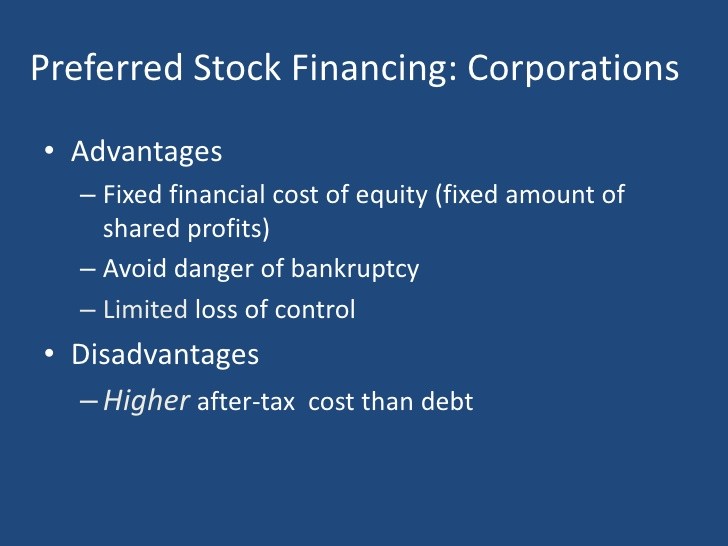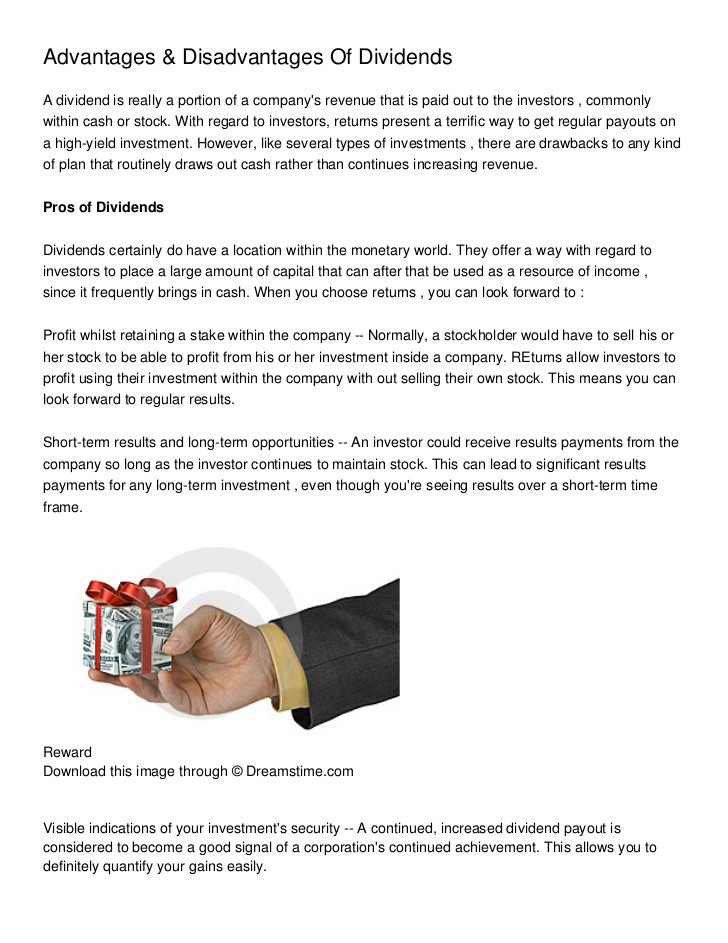Common Stock Advantages and Disadvantages Financial Web
Post on: 16 Июнь, 2015 No Comment

Part 1: Advantages and Disadvantages
Every share of common stock represents a proportional ownership, or equity. in a company. If a company has only one share of common stock and an investor owns it, the investor owns the entire company and is entitled to one hundred percent of the companys profits. If a company has 100,000 shares of common stock and an investor owns one of them, then the investor owns 1/100,000th of the company, and as such, has an interest in 1/100,000th of the companys profits.
Common stock has a number of advantages which make it a desirable investment vehicle, some of which are listed below:
- Common stock has the potential for delivering very large gains, unlike bonds . Certificates of Deposit . or some other alternatives. Annual returns-on-investment (ROIs) of over 100% have occurred on a somewhat regular basis.
- The potential loss from stock purchased with cash is limited to the total amount of the initial investment. This is considerably better than that of some leveraged transactions, where the maximum loss can well exceed the total of the funds invested.
- Stocks offer limited legal liability. Passive stockholders (those who take no active part in the running of the company) are protected against any liability stemming from the companys actions beyond their financial investment in the company.
- Most stocks are very liquid; in other words, they can be bought and sold quickly at a fair price.
- Although past performance is not a guarantee of future performance, stocks have historically offered very high returns in relation to other investments.
- Stocks offer two ways for their owners to benefit, by capital gains and with dividends. As previously stated, each share of stock represents partial ownership in a company. If the company becomes more valuable, so will the ownership interest represented by each share of stock. This appreciation of the stocks value is known as a capital gain. In addition, if the company earns more profits than it needs to support its maintenance and growth, it may elect to distribute the excess to its owners, the shareholders. The periodic distributions of profits are called dividend payments.

While there are numerous advantages, common stocks, like all investments, have some distinct disadvantages which investors must remain aware of:
- Since common stock represents ownership of a business, stockholders are the last to get paid, like all other owners. A company must first pay its employees, suppliers, creditors, maintain its facilities and pay its taxes. Any money left can then be distributed among its owners.
- While shareholders are company owners, they do not enjoy all of the rights and privileges that the owners of privately held companies do. For example, they cannot normally walk in and demand to review in detail the companys books.
- Investors in a company may not know all that there is to know about the company. This limited information can sometimes cause investment decision-making to be difficult.
- Stock prices tend to be volatile. Prices can be erratic, rising and declining quickly. Such declines often cause investors to panic and sell, which actually only serves to lock in their losses.
- Stock values can sometimes change for no apparent reason, which can be quite frustrating for the investor who is trying to anticipate the stocks behavior based on the actual performance of the company.
In Part 2 of this series, well explore the various kinds of common stocks.
$7 Online Trading. Fast executions. Only at Scottrade














